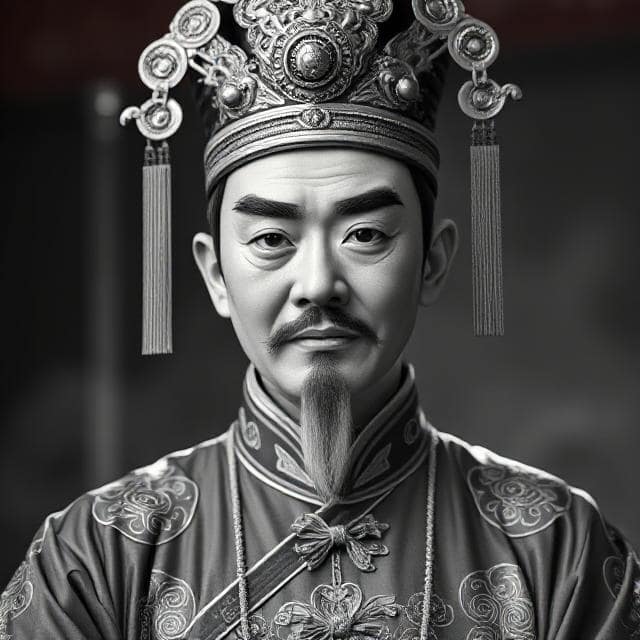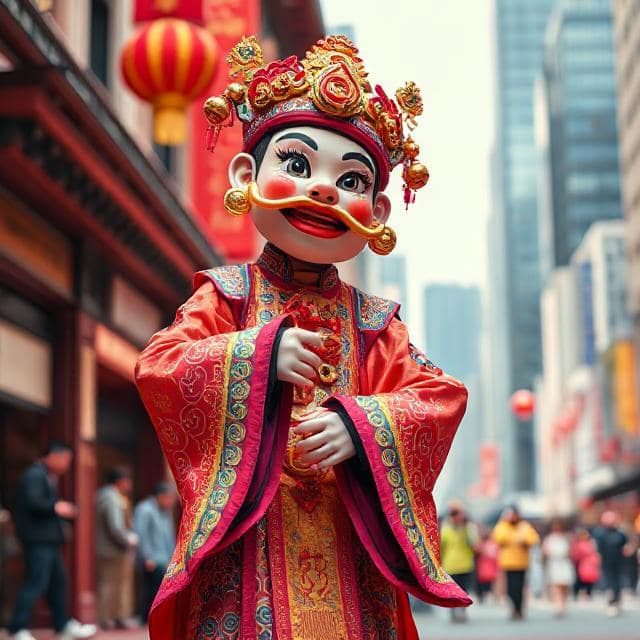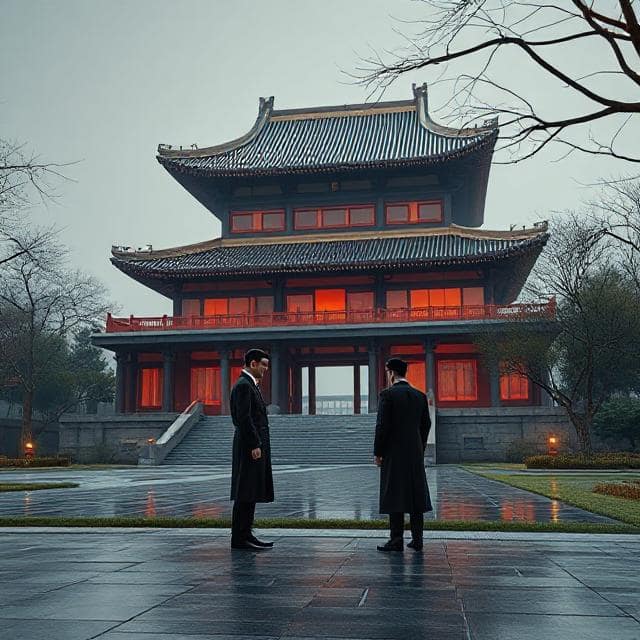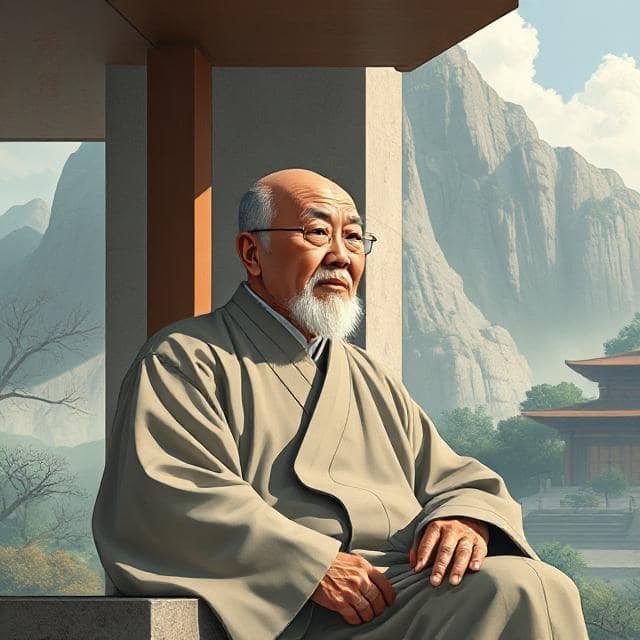Introduction
History provides a stage for extraordinary lives whose intersections of art and reality challenge the boundaries of accepted discourse. Shi Pei Pu, a celebrated Chinese opera singer and actor, serves as a compelling case in this tradition, enfolding within its contours a blend of praise, scandal, and sustained ambivalence. While his measured genius in rendering the dan, or female, roles of the classical Peking repertoire secured admiration and led to scholarly acclaim, his extracinematic narrative gradually transformed into one of the century’s most inscrutable dramas, merging romantic impulse, geopolitical intrigue, and a sustained performative self-creation.
As the tar of the Chinese dan, Shi illuminated the varnished anonymity of masculinity cloaked in idealised femininity. The pliancy of his stance, the tremulous modulation of his voice, and the scrupulous self-abnegation he enacted embodied the artifice systemically celebrated within the tradition. The contours of these roles, and the storied conventions of masculinity that support them, interlace with a reality that Shi engineered for decades, allowing the line between embodiment and enactment to thin into haze. The stage, however, was but prologue.

The sanguinary chapter of his life—that featuring Bernard Boursicot, a young attaché with the French embassy—exhibits the full ferocity of theatrical metatext. Within its claustrophobic fictions, Shi sustained for more than twenty years the impersonation of the female he claimed to be, fabricating a fictive maternity that nourished carefully monitored ideological objectives. As the elaborate charade pivoted into a tool of intelligence, the capital of love fronted the collecting of secrets, and the argument lost any classical footing, spiraling into the containment of the original improvisation. The narrative erupted into the international imagination only in the early 1980s, by which time the fable of Shi and Boursicot displayed a burning synthesis of seduction, betrayal, nation, and the disconcerting transparency of ability to aestheticise registration into substrate.
Shi Pei Pu’s extraordinary trajectory—from adolescent singer at the Beijing opera to furtive diplomatic intrigue—stands as both a cautionary tale of espionage and a living archive of Sino-Western tensions. The pulse of this drama reverberated through David Henry Hwang’s celebrated stage work, later transmuted into cinema, securing Shi’s name a place alongside the surest icons of modern dramatic literature.
Within this study, I retrace Shi’s metamorphosis with the precision of a historian and the empathy of a poet, moving from the crackling of early Jiangnan opera to the tremors of the love affair with the French attaché, through the explosive revelations of espionage, the tabloid clamor of the Beijing trial, and the afterlives of the stage and screen texts that still, at each new revival, retrace the crepuscular geography of his identity.
Early Life and Background

Birth and Childhood
Shi Pei Pu came into the world on December 21, 1938, in the Shandong province of the Republic of China. With a father who taught at a university and a mother who worked as a schoolteacher, Shi had the kind of home where learning and creativity were part of everyday life. The family eventually settled in Kunming, and it was here that Shi explored the world of ideas, immersed in stacks of books, paintings on the walls, and lively conversations that challenged and inspired him.
Education and Interest in Arts
Shi studied at Yunnan University, where he earned a degree in literature. While he was there, he became fascinated by the performing arts, especially Chinese opera. He knew this art form required natural ability and many years of hard work, yet the challenge only deepened his love for it.
Training in Chinese Opera
Shi spent years perfecting Peking opera, choosing to specialize in the “dan” roles. These are the female characters, and because tradition called for men to play them, his education meant wrestling with far more than just singing. He studied how to move like a woman, how to bend a wrist just so, and how to flick hair with a single, deliberate gesture. He practiced every layer of makeup until the rice-paste blooms seemed effortless and feminine. Each painstaking detail, every carefully honed curve of his performance, soon slipped from stage to life, allowing a quiet lie to slip under the radar of friends, lovers, and, eventually, himself.
Shi Pei Pu and the World of Chinese Opera

The Art of Playing “Dan” Roles
In Peking opera, the “dan” roles are some of the most admired. To play them, an artist must show grace, perfect posture, and emotional truth. Shi Pei Pu excelled at stepping into a woman’s shoes on stage. He perfected each flick of the wrist and lift of the chin, until the crowd could hardly accept that the person in the kimono had male bones. Shi’s talent melted the border between the play and the person, leaving even his own reflection an open question.
Recognition and Performances in China
Shi became well known for his operatic roles, winning over crowds by completely stepping into the shoes of female characters. He never reached the same fame as some of the biggest stars of his time, but word spread quickly about his remarkable skill and natural stage presence.
How Stage Skills Shaped His Persona
The stage discipline Shi absorbed became a blueprint for his everyday life. Mastering the art of embodying a female role in opera let him fold performance seamlessly into reality, blurring the line until illusion felt normal. This skillful façade proved potent when it caught Bernard Boursicot, holding him in the spell for more than twenty years.
The Fateful Meeting with Bernard Boursicot

A Chance Encounter at a Diplomatic Party
In December 1964, Shi Pei Pu walked into the elegant courtyard of the French embassy in Beijing, all twinkling lights and snow-dusted pines. Among the holiday chatter, he spotted a young French official named Bernard Boursicot, barely 20 and still adjusting to life as an accounting attaché. Their friendly exchange lasted only a few minutes, but that mild magic of the moment ignited an extraordinary, unbelievable story that would forever twist the invisible layers of the spy world.
The Gender Deception
Shi asked Bernard to sit by the fountain in the moonlight and whispered that she was really a woman who had to hide behind a man’s mask so her father’s power could keep her safe. Bernard felt the story sink into his heart like a stone kicked into water. Over the weeks that followed, the simple confession changed shape and came alive. Their friendship deepened, the air between them charged, and they crossed the border into a different country—a country of kisses and trembling bare skin and urgent breathing. But Shi’s one rule never changed: the bedroom always had to stay almost completely dark, like a stage that never let the audience see the actor’s true face.
Emotional Attachment and Trust Building
As the weeks turned to months, Bernard found himself wrapped in the kind of love that made the heart race and the world fade away. Shi, with her laughter and quiet strength, seemed to Bernard like the answer to every question he’d ever asked in the dark of night. What he didn’t see was that this bond was quietly becoming the thread that Shi would pull, leading him deeper into the shadows of a game he didn’t even know he was playing. Little by little, she began to guide him across invisible lines, introducing ideas and loyalties that whispered danger. Every whispered hope felt innocent; every shared dream seemed beautiful. Only in those silent, still moments afterward did he question where the road inside her eyes would truly end.
Two Decades of Love and Espionage
How Secrets Were Passed
Bernard figured he was helping a friend when he shared the embassy papers with Shi. He was convinced that Shi needed the info to stay safe, and, being a Diplomatic Security officer, he trusted that his buddy inside the chancery would never misuse it. Instead, Shi neatly filed the sensitive documents and quietly forwarded the real goodies to a handler waiting back home. Within days, the papers vanished from his device and resurfaced somewhere in a Beijing basement.
Role of Chinese Intelligence
Chinese security circles are commonly thought to have recruited Shi as an operational vector within broader espionage campaigns. Her liaison with Bernard afforded his handlers continuous exposure to sensitive intelligence during the Cold War, thereby anchoring the emotional dimension of their liaison within the analytical frameworks of statecraft.
Maintaining the Illusion for 20 Years
Shi kept the act going for almost twenty years. By managing closeness, steering feelings, and using Bernard’s trust, Shi hid his real gender—an accomplishment that seems unbelievable when you look back at it.
The Child that Never Was
The Story of “Shi Du Du”
Shi later told Bernard that he had given birth to a son, named Shi Du Du, as a result of their relationship.
Adoption and Manipulation
In reality, the boy had been adopted from a Uyghur family. Yet Bernard never questioned Shi’s claim and accepted the child as their biological son, strengthening the emotional bond between them.
How Bernard Believed the Lie
The presence of the child reinforced Bernard’s belief that Shi was a woman. This lie further deepened his attachment and ensured his continued loyalty.
Arrest, Trial, and Global Shock

The 1983 Arrest in France
In 1983, French authorities arrested both Shi Pei Pu and Bernard Boursicot on charges of espionage. The news stunned the world, as details of their unusual relationship began to emerge.
Court Revelations and Sentence
During the trial, revelations about Shi’s true gender, the fabricated child, and years of espionage came to light. The court sentenced both Shi and Bernard to six years in prison.
Presidential Pardon and Release
In 1987, French President François Mitterrand issued a pardon, leading to Shi and Bernard’s release after serving only part of their sentence.
Art Imitates Life – M. Butterfly
David Henry Hwang’s Broadway Play
In 1988, playwright David Henry Hwang adapted Shi’s story into the Broadway play M. Butterfly, which explored themes of love, deception, East-West relations, and gender stereotypes.
The Film Adaptation in 1993
The play was later adapted into a film in 1993, directed by David Cronenberg. The movie brought the story to an even wider audience, immortalizing Shi’s life on screen.
Impact on Western Audiences
Both the play and film challenged Western audiences to rethink assumptions about gender, love, and cultural perception. Shi Pei Pu’s story became a lens through which society could examine identity and deception.
Later Life and Final Years

Life in Paris After Release
After his release, Shi settled in Paris. He occasionally gave performances but largely lived out of the public eye.
Continued Mystery and Silence
Shi rarely spoke about his past or the scandal. In interviews, he often offered cryptic statements, once saying: “What I was and what they were didn’t matter. I used to fascinate both men and women.”
Death in 2009
Shi Pei Pu died in Paris on June 30, 2009, at the age of 70, leaving behind a legacy shrouded in both admiration and controversy.
Legacy of Shi Pei Pu
Gender and Identity Lessons
Shi’s story forces us to question the boundaries between gender, performance, and identity. Was Shi simply an actor extending his art into life, or was it something deeper?
Espionage and Emotional Manipulation
The case stands as one of the most unique examples of espionage, where love and emotional manipulation became powerful tools of intelligence gathering.

Lasting Impact on Art and Culture
Through M. Butterfly and countless discussions, Shi Pei Pu’s story continues to influence art, theater, and cultural studies worldwide. His life remains a powerful symbol of how truth can sometimes be stranger than fiction.
Conclusion
Shi Pei Pu led a life that felt like a staged play—beautiful on the surface, but drenched in intrigue beneath. He was a master of the Chinese opera stage, captivating audiences with every gesture. Yet behind that makeup was a trained spy whose masterstroke was convincing one man, Bernard Boursicot, that a covert affair was true love. For years, their disguised romance wove through the hallways of power, with seduction and secrets its moving, whispered dialogue.

What echoes today are not just facts in a dusty file. Opera and cinema have given Shi the plum roles, re-dressing the tawdry espionage in jeweled costumes. Each telling, from biopic to ballet, fiddles a little with the headlines, yet the theme stays the same: love traded, identities tossed like discarded costumes. In every encore, the performers and viewers are still asking—who wore the mask longer, and who wept behind it?
In the final bow, Shi Pei Pu is a cautionary encore we play in our heads. He shows just how thin the painted line is between play and player, between the caress we long for and the knife we dare not see concealed beneath it.
Read more about: Top 10 Y2K Fashion Icons Reimagined in Modest Muslim Style


